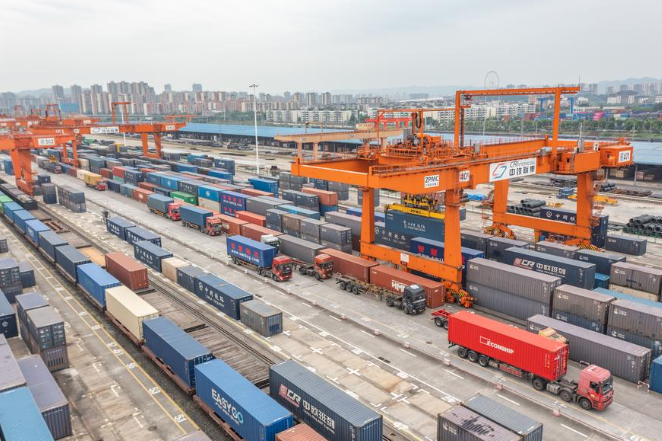Chinese expert questions US technology approach

China's technological advancements in recent years have raised concerns in the US about competition and so-called national security, according to experts.
The topic of US-China tech competition was discussed at a forum hosted by The Carter Center in Atlanta earlier this week, and experts say that the governments should produce a roadmap to avoid a divided technological world.
The Biden administration put forth a set of rules in October to tighten export controls to China on semiconductors used in artificial intelligence, with the aim of restraining Chinese technological development.
The way the US keeps its technological superiority "has been changing China's view of the technology policy from the US", Zhao Hai, research fellow at the Institute of World Economics and Politics, Chinese Academy of Social Sciences, told the forum.
The restriction was made in the name of national security, but China said that abuses the concept.
"The US government should define parameters of national security regarding technology," said Zhao.
With US restrictions on technology transfers, China has responded by investing in domestic technology and pursuing self-reliance in the semiconductor industry.
"The recent report shows that Chinese companies are much less likely to be interested in those (US) chips, because domestically, Chinese companies including Huawei can produce relatively capable or similar chips," according to Zhao.
Huawei released the Mate 60 Pro smartphone last August by using its own chip designs for the new 5G handset. In fact, when US sanctions blocked companies from supplying chips to Huawei for its phones, the Chinese manufacturer had no choice but to rely on HiSilicon, a chip company that is a Huawei subsidiary.
"This kind of unreliable supply and tightening control of the chips and other semiconductors' production is making Chinese companies and markets less likely to accept American technology and American companies in China. This is a lose-lose situation for both countries," Zhao told the forum.
Zhao warned that there will be an accumulative impact from the technology controls, not only in chip production but also on AI and business investments.
"So, (it takes) political courage to find out the parameters of national security and … both sides need to have extensive dialogue on the strategic level," Zhao said. Open science should be the health for those civilian markets on both sides, instead of gradually increasing the small-yard high fence to a big yard of higher fence."
With tighter US tech-export controls on China in 2024, business communities might continue re-evaluating their relations with China. However, said Zhao, there's still an opportunity for global business in the Chinese market.
There is still a strong desire for Chinese companies and the Chinese government to cooperate globally, and it's good to see both countries begin to talk about AI and its implications, he said.
"If the US is really true to their idea of small yard and high fence, I think both sides including the business community need to work together to make sure that that yard is continuing to be small and that fence does not prevent the holding of all the technologies' flow across borders," Zhao added.
"The emerging technologies, especially in AI supercomputing, quantum mechanics, will create even more uncertainty about these potential applications that could be for commercial (uses), it could be for financial, it could certainly be for military," said Daniel Aum, who was awarded the Howard W. Rosenthal Fellowship in International Relations in 2022. He served as a fellow with the US House Foreign Affairs Committee and the Subcommittee on Asia.
The global semiconductor supply chain is concentrated in the hands of a few firms in the US, South Korea, Japan and Taiwan. Chinese policymakers are pursuing self-reliance in chip production and calculated countermeasures to mitigate Western export controls and "national security" concerns.
Yang Nan, associate research fellow at the Chinese Academy of Social Sciences' Institute of American Studies, told China Daily that the emergence of digital data has been a new form of power in geopolitical competition between the US and China. Yang said that free cross-border data flow and digital trade will benefit most American and Chinese companies.
"I think the most important thing is we have to find a balance, and each side could cooperate on some cutting-edge technologies such as chips and AI, because the US and China are the critical partners globally," said Yang.
Zhao told China Daily that "China's domestic competition is market driven, not just government facilitating", adding that the competition will continue for the next decade.
"However, that does not mean that the two sides need to conflict. The relationship can be managed effectively if national security can be clarified," Zhao said.

































